


Human medicine?
Common sense
D.I.Y
Finding a good vet 
Dealing with unexpected births
Seperating or Quarantine
Oreo's sebacious cyst
To supplement or not?
Ethoxyquin. Safe or not?
Mites, lice or ticks?
Human medicine?
Medicine meant for humans should never ever be used on cavies unless instructed to by the vet. Mites, lice & other skin related ailments can be common & I have heard people advising others to use certain medicines meant for humans. I am against this 'cos medicine went for humans could be too strong for cavies. Sprays, creams, medicine, etc for dogs & cats are already considered too strong for cavies. Can you imagine those meant for humans?
There are creams & other types of medicine meant for small animals & that's what you should be using. Not stuff meant for dogs, cats, birds, humans or what not! Even for shampoo you are advised to use those formulated for small animals. However there are those who feel baby shampoo is fine. But certainly not adult shampoo or dog shampoo!
Common sense
If you visit overseas message boards often enough, you will often seen people saying that their cavies are dying & asking what to do. As mean as this may sound, if your cavy is dying isn't it common sense to bring it to the vet? Why waste time posting on the message board? By the time people reply & tell you to bring it to the vet (duh!) it would probably be dead already.
If its a skin related ailment e.g. mites or loss of fur, I suppose you could post on message boards to ask for opinions. But if its something serious like bleeding, inability to move, wet nose, etc then for goodness sake don't waste time posting on boards. Just get it down to a reputable vet. I am sure a good percentage of cavy deaths can be avoided if the owner just sent it to a vet immediately, rather than post on message boards & have lengthy debates over what to do.
D.I.Y
Any responsible cavy owner should check his cavy everyday for anything abnormal. The eyes should be clear & not have any discharge or crust. The cavy's poop shouldn't be too soft or it could indicate Diahorrea. Milky urine which smells sour or bloody urine definetely warrants a trip to the vet. Bald patches indicates skin problems. Vigorous scratching could be the beginning of skin problems. Once you hear your cavy sneeze, go on the alert. If he continues sneezing (even if occasionally) take him to the vet to confirm if he has the flu.
Eye discharge & wet nose are also symptoms of flu. You should look at your cavies daily & pay attention to signs of anything amiss. Is the nose wet? Any eye discharge? Is the butt smeared with poop? Any bald patches, etc.
Lice, ticks or mites are common problems with cavies & you can try to solve the problem by yourself. Petshops sell shampoos that are usually formulated for ticks, mites & lice. If you can't find one that is specifically for small animals, get one that is for kitten or puppies. Follow the instructions of the shampoo. Usually you are directed to bathe your cavy with the special shampoo once a week. You also need tick-mite-lice powder to be used daily.
Sprinkle the powder liberally & use your hand to massage the powder well into the fur & skin. After that, use a comb or soft brush to brush off the powder. Brush in both directions & make sure you remove as much powder as possible. Once again, avoid the face. You may sprinkle a tiny bit of powder on your finger & rub it on the cavy's head, but be very careful to ensure it doesn't go into the eyes & always brush off. If you need to put tick powder on her face, don't! Instead get those sprays for ticks, mites & lice. Spray some on a cloth & then wipe it's face, head & ears with it, once again avoiding the eyes, nose & mouth area.
Brushing usually will not get rid off all that powder & you will have to blow it off. The easiest way it to blow from your mouth. Needless to say, breathing at this point of time is not recommended unless you want to breathe in a noseful of powder! You could also use the hair dryer which has been set to "cool" & then blowing away the powder. Try using a small hair dryer which is less noisy & scary. At all times you should cover the cavy's face to prevent powder from getting to its nose or eyes. Naturally your job will be a lot easier if your cavy helps you by shaking himself vigourously although it seldom happens.
You should see some improvement after 1 week or so. If by the 2nd week the lice, tick or mite problem hasn't been solved, its time to visit the vet. All other illness should be dealt with by the vet immediately. I know there are medicines for diahorrea & other problems that are available but I don't suggest you try curing the cavy with it.
There are many illnesses that can befall our four-legged friends & the symptoms are just as plentiful. This is just a rough guide. Basically, look for anything which doesn't look right, or anything which wasn't there the last time you looked.
Although it is not recommended that you play vet & attempt to treat the cavy by yourself, there are some medical items that are handy to have around for minor problems that don't need a vet's attention (provided the condition doesn't worsen).
A spray for lice, mites & ticks will be very useful indeed. See above for more instructions regarding handling lice, mites or ticks. Cauter Gel is supposed to be less messy than antiseptic powder but they both do the same thing, which is help to stop small cuts from bleeding & getting infected. Esbilac is a brand of milk replacer for young animals who are abandoned or orphaned & don't have the mother's milk.
Oxbow also sells an emergency pack called "Critical Care" for animals that are too ill to eat solid food. I wouldn't go into details about it since its not available locally so far. Again, keep in mind that these items are only for minor problems & if the problem gets worst you must see a vet!
When their cavy falls ill, some people waste time posting on the internet & asking for help instead of visiting the vet. This is a big mistake! Small animals can die very easily & the more time you waste, the slimmer the chance of recovery. If your cavy appears ill, send it to the vet without delay. I find it sad that some people can post messages begging for help & saying their cavies are dying, yet these very people don't have the sense to visit a vet. Its like telling people your father had a heart attack & asking people what to do, when you should have called the ambulance! Duh!!
Finding a good vet
Unfortunately, most vets do not seem to know as much about cavies as they do about cats or dogs. Hence I'd advice you to look & ask around & find a vet who has more experience with Cavies. The last thing you want is a vet who saw a cavy once, 5 years ago! I applaud a vet located in Thomson Road who was honest enough to tell me he seldom sees cavies & refered me to 2 other vets.
After finding a suitable vet, make sure he's patient & willing to talk. Some vets may be good but are very impatient & will even give you dirty looks if you ask too many questions. Remember that you are paying him & any decent vet should understand how an anxious owner feels & should answer all your questions.
You should certainly avoid a vet who can't seem to be bothered. If he doesn't conduct a proper check up, there's no way he can tell if the cavy is healthy or not. And don't fall for the "I've got 20 years experience so I can tell if he's okay or not" crap! Even with 100 years of experience, there's no way the vet can tell if the cavy is ill or not, by simply looking at it or fingering it for under 5 minutes! A vet who is gentle with animals is a definete must. In my opinion, vets who are rough with animals don't deserve to retain their license!
If you're a first time owner, remember to insist on a demo if your cavy was prescribed oral medication. The vet should administer the first dose & describe the process to you as he goes along, so you can learn. It's the vet's responsibility to ensure that you've been taught how to correctly administer medicine. Feeding oral medication to a cavy is heck of a different from feeding medicine to a dog!
I was recommended Dr. Aw Ai Sim but I heard she has since retired & her clinic has been taken over by 2 other ladies. The contact info is:
Animal Medical Centre
My friend Jacqueline who's into rabbits highly recommends Dr Ling Khoon Hsing. Her contact info is:
Namly Animal Clinic
Jacqueline says she's great with rabbits & apparently Dr Ling was the first vet in Singapore to neuter a rabbit. Although rabbits are quite different from cavies, you could give Dr Ling a try anyway. I've been there before & she seemed very knowledgeable about guinea pigs. I also noticed she would spray disinfectant on the table & give it a wipe after each animal leaves. Nothing like a good sense of hygeine! Consultation is $20 & cash, NETS, credit cards & cheques are accepted. Many more vets can be found in the telephone directory, but keep what I said in mind when selecting one.
I used to visit Edmond Tan in Blk 151 Serangoon North Ave 2 but have stopped going. When my first cavy died, I thought it was just a coincidence. Then my second cavy died despite his medicine. He was also unable to cure my uncle's rabbit's foot disease which eventually spread to it's face. When Melissa brought her late dog to him, he let it wait for 2 hours, as he tended to normal check ups, even though it was an obvious emergency case. I think it's quite obvious that he's hopeless particularly with small animals.
On 16 April 2003, "Today" newspaper featured an article about Edmond Tan. I have reproduced the article here. Edmond was found guilty of improperly handling vaccines & supplyling controlled vaccines to a dog breeder.
Another vet to be careful of is "Mr. J" in Whitley Road. This was the guy who was "featured" in The New Paper for not properly cremating some fellow's dog. The guy paid for a proper cremation but "Mr. J" apparently just put the dog over some "barbeque pit" and set it ablaze.
That same newspaper article also mentioned that some medicines which "Mr. J" uses are expired to which he apparently replied that it is acceptable to have "some" medicine which did not expire too long ago. For goodness sake, expired medicine is expired medicine regardless of whether it expired 1 week ago or 1 year ago! More recently, a stray cat near my flat was brought to him by some feline lovers group. The cat had a lump on its back & it was infected. "Mr. J" operated on it & it died. It was later discovered that "Mr. J" gave it too much anaesthetic.
Do you want your pets going to people like Edmond Tan or "Mr. J"? I think not! I'm not slandering these 2 people & whatever is mentioned on this page about them is based on facts. I hope that no one out there makes the mistake of bringing their pets to such hopeless vets! No vet is perfect & can claim to have 0% fatality rate. But Dr Ling Khoon Hsing is definately one of the best in Singapore. Remember, this is the lady who was the first vet in Singapore to successfully neuter a rabbit. She's also the one to successfully operate on my dear little Oreo. I've also heard many other praises about her from others so do check her out.
Lastly, this may seem like common sense but the problem is sometimes, common sense isn't very common! If the vet doesn't seem to be doing a thorough check up or if you think he doesn't know squat about cavies, get a second opinion. Say your cavy has been sneezing but the vet claims there's no symptoms of flu. Bring it to another vet just to confirm it. This is especially true if its something major like if the vet recommends a jab or surgery. There's no harm asking another vet because this involves your cavy's well being. The only harm done is a hole burnt in your wallet, but you should've been prepared for this before you bought the cavies!
Dealing with unexpected births
Breeders will usually know which cavies are pregnant & will not sell you one unless you request for it. If you get a petshop female Cavy, there's a 50% chance it is pregnant & the shop will not know nor will they care. Imagine the shock I had on 15 Mar when I discovered 3 cavies instead of 2! Oreo was pregnant & I didn't even know!
I did notice Oreo getting a bit fatter but I assumed she was fat & didn't expect her to be pregnant. So this is one area you should be on the look out for, whether she's getting fat. Enlarged nipples are another tell tale sign. There is much more info regarding pregnancies but I shall not discuss them here 'cos I'm not very knowledgable in that field.
What I shall discuss is what to do if you suddenly discovered a baby cavy. If you are present during the birth, see how many babies are born. The young have a sac covering their nose & mouth & they will suffocate if the sac isn't removed in time. If your sow gives birth to more than one, you'll need to help her remove the sacs if not she may be too late when she comes to the last baby.
In my case, the baby was already born & sitting there staring into space when I discovered him. You must NOT seperate baby from mother 'cos it needs her milk & care. Remember that I am talking about unexpected births here so I will not touch on topics like what to do with the father & all that. If you kept a male & female together, surely you'd have expected this to happen!
Assuming you are like me & have more than 1 female cavy, try to find out the gender of the baby. You can usually do this after 3 weeks. If it's male, you will need to seperate it from the females once it is about 2 months old. If you don't do this, you're going to end up with 1 or more pregnant females. Even if you intend to breed them, you still must seperate the male. This is to prevent him from making his mother pregnant which he WILL! We're not talking about morals here but if his mother is 1 year or older, it is unsafe for her to give birth.
The mother will take care of the baby so you needn't worry that much. Just ensure she gets enough food & water. You could increase her intake of fruits or vegetables slightly. It is also possible to give both mother & child alfalfa hay daily to boost their calcium intake. However the alfalfa hay should be stopped about 2 weeks after delivery 'cos too much alfalfa, like we've discussed before, is harmful to adult Cavies. You can continue giving the baby alfalfa but its gonna be tough to prevent mummy from eating it too, so you may have to stop the alfalfa all together. This does NOT apply to timothy hay which should always be present in large amounts.
There shouldn't be much blood from the episode but if the sow is bleeding quite a bit after giving birth, rush her to the vet & bring the baby along too.
Seperating or Quarantine
Some people feel it is a good idea to quarantine a new cavy for 2 weeks before letting it join the other cavies. This is in case it has any illness which may take some time to show up. Personaly I think quarantine is only necessary if you bought the Cavy from a pet shop. This is because cavies from SPCA or a responsible breeder are most likely to be 100% healthy if not it wouldn't have been sold to you.
Another appropriate time to quarantine your cavies would be if it has an infectious illness like flu, skin problem, etc. The cavy in question should be placed in a seperate cage. If the illness can be spread by the air (e.g. flu), you'd better put the cage in another room. However I feel that both cages can be kept in the same room for skin problems 'cos that spreads only through contact & not the air.
Try to make the quarantine cage similar to the existing cage so that the cavy will find it easier to adapt. This will not be an appropriate time to experiment with new bedding, new food, etc 'cos the furball is already stressed enough in a new cage & being all alone. As long as you have a cavy in quarantine, remember to wash your hands before & after touching each cavy. You wouldn't want to be the carrier for the illness!
A common mistake is getting a smaller cage for quarantine. Both the "actual" cage & the quarantine cage should be of the same size. Imagine this. You have 4 cavies. 1 gets mites & is placed in a small quarantine cage. It fits him perfectly 'cos he's the only tenant. Then you discover another cavy has mites & you put her into the quarantine cage. Now the cage becomes far too small 'cos it has 2 cavies in it. Now what are you going to do? Buy a third cage? That is why I said both cages should be the same size.
Oreo's sebacious cyst
If you find a lump or growth on any part of your cavy, pay close attention to it. If it grows or changes colour, bring the cavy to the vet. An operation may be required to remove it. Of course there's the risk of your cavy not waking up from the anaesthetic so its your choice. I discovered this lump on the right side of Oreo's leg near her butt. It was growing so I brought her to Dr Ling.
In the end I decided not to remove it since she was not in pain & going around normally. But the lump grew bigger & one day it "burst". At this stage obviously the lump had to come out. So on 11 April 2001 Oreo went for surgery. There's a risk of small animals not waking up from the anaesthetic but there was no choice. The lump had already burst & if I was to leave it alone, it would surely get infected. In the end Oreo might have died a slow & painful death. Hence I took the risk & fortunately everything went smoothly.
Dr Ling believed it was a sebacious cyst. She said it was rather deep so she had to remove a bit of Oreo's leg muscle near the lump as well. Fortunately Oreo is able to walk normally despite that. After the operation Dr Ling gave Oreo an anti-biotics jab (Baytril to be precise). I had to feed Oreo 0.15 ml of Baytril once daily. Fortunately it was a small amount 'cos she struggled everytime. Guess it tasted horrid! The Baytril lasted about 12 days. I also had to dab some
Chlorhexidine solution on cotton wool & clean her wound twice daily. The operation, medicine & everything costed $137. Not cheap but at the end of the day, the question is how much you love your pet!
Oreo had to wear a "collar" around her neck to prevent her from biting her wound. She also had to be seperated from the other two. Fortunately I had a spare cage & all. Oreo had her stitches removed on 24 April & had to wear the "collar" & be seperated for another week to allow her wound to heal completely. Basically that's Oreo's whole story.
I hope you never have to be in this situation but if you do, I wish you & your furball all the best. Oreo could have died on the operation table but fortunately she didn't. She could've survived & then developed an infection a few days after the operation but fortunately that didn't happen. Ultimately its the skill of the vet & also luck that counts.
To supplement or not?
A question many people ask me is whether they should give supplements. Vitamin C tablets, calcium tablets, mineral tablets, etc. Well the rule of thumb is that if your cavy is healthy & gets the required amount of hay, pellets & fruit and/or vegetables, then you don't need to worry about supplements. In fact more is not always better.
Although your cavy needs vitamin C, too much is harmful to them. Most pellets already have vitamin C & if you feed your cavy fresh vegetables and/or fruits daily, your cavy should be getting its required amount of vitamin C. Hence there is no need to feed them chewable vitamin C tablets or add vitamin C supplements to their drinking water. Like I said, more is not always the best. In this case, excess vitamin C will do them more harm than good! But if your cavy is not feeling well (for e.g. suffering from flu, just recovered from diahorrea, just had an operation, etc) then it is alright to give them vitamin C supplements. However once they have recovered, you should stop.
The same applies to vitamin A supplements, vitamin B supplements, multi-vitamin tablets & all that other stuff. If your cavy is fine & has a proper diet, it doesn't need those. If its unwell, those tablets might help it recover faster, but once it recovers it doesn't need anymore. A healthy human being who has a healthy diet doesn't need supplements. Same applies to animals.
All that I have said above applies to calcium tablets too. All pellets contain calcium & besides, too much calcium causes bladderstones especially in mature cavies 6 months & older. That is the precise reason why alfalfa hay is not recommended as an everyday feeding hay for mature cavies due to its high calcium content. If your cavy is suffering from some health problem due to lack of calcium, I'm sure your vet will prescribe calcium supplements & other necessary things, so you don't have to give it more calcium. And if your cavy is perfectly healthy, why worry about calcium? As with vitamins, too much calcium is more harmful than good!
The last type of so called "supplement" I've seen is the salt lick or mineral stone. I saw a real stupid posting on a message board recently. This person claims that salt licks are good 'cos cavies drink more water after licking it. So he preaches that people should force their cavies to lick salt licks so that cavies drink more water. MORON!! The reason the cavy drinks water after licking the salt like is 'cos its thirsty thanks to the salt! Would you feed a baby a mouthful of salt to intentionally make it thirsty so that the baby drinks water?
It doesn't make sense at all! A healthy cavy is fully capable of telling when it is thirsty & it will drink as & when necessary. If it needs more water, it will drink more. If its not as thirsty, it drinks less. You don't need to tell it how much to drink or control its intake of water! To force a cavy to become thirsty (by forcing it to lick the salt lick) so that it drinks water is an irony in itself! Your cavy will become thirsty eventually. Its nature! You don't have to make your cavy thirsty!
Besides, pellets contain salt & other minerals already so why does your cavy need more? Like I keep on saying, if your cavy is perfectly healthy, it doesn't need any supplements at all! If it is ill, supplements may help it recover faster but they should be stopped once the cavy has recovered. I think we should all remember that more is not always best! So if that is true, then why do manufacturers make them?
Money! If they can convince you that your cavy needs all this stuff, you will buy them & the manufacturer earns a profit. Just like how those unscrupulous people insist that pine & cedar shavings are safe. The main thing is that they earn money. They don't care about your cavies' well-being. So please don't give your cavy an overdose of supplements just 'cos some of your friends are doing so. "Monkey see, monkey do" is not the wisest thing!
Ethoxyquin. Safe or not?
There has been a lot of debate on this issue but I think most people would agree that Ethoxyquin & other chemical preservatives are unsafe. Some say Ethoxyquin causes cancer, some say it prevents it. Some say it help extend vitamin C life, some disagree. Some say its bad only in large amounts, others say in small amounts even. So who do you believe? Well, below I have several quotes that may interest you.
If you thought I made those up, they were actually from a report from Dr Alicia McWatters. Below I have links to several pages that go into detail about the dangers of Ethoxyquin.
In fact the last time I checked, there were 8080 sites about Ethoxyquin. I'm sure most of those sides will tell you negative things about it. If you're interested, click on this link to go to Yahoo's result listing for Ethoxyquin.
After you visit those sites & read the in-depth reports, I'm sure you can come to your own conclussion. One of those sites features a letter from an "expert" who says the direct opposite & claims that Ethoxyquin does more good than bad. Before you read the article, you should be aware that this person works for Kaytee & every single Kaytee product uses Ethoxyquin. Get what I'm hinting at?!
Rochelle Lesser, a nationally certified school psychologist, has a website in which she mentions that Ethoxyquin is alleged to cause cancer, liver, kidney & thyroid dysfunctions, reproductive failure & more. Her site also mentions that BHA (Butylated Hydroxyanisole) & BHT (Butyhlated Hydroxytoluene) have been associated with liver damage, fetal abnormalities & metabolic stress, and they have a questionable relationship to cancer.
The choice is your's but with all the research & evidence which shows the dangers of chemical preservatives, if I were you I wouldn't use any product preserved with them. Especially since there are products that use natural preservatives such as mixed Tocopherols & citric acid (which are actually Vitamin E & C).
Mites, lice or ticks?
Many people are confused over the difference between mites, lice & ticks. When some people realise their cavies may be infested by one of the 3, they go to the vet. Others may wish to buy powder from the petshops to try first. Well if you want to buy powder, you need to know what's disturbing your cavy. No point buying tick powder for lice. Similarly, no point buying mite spray for lice.
Mites are the tiniest of the 3. Its so small its almost invisible to the naked eye. It resembles tiny black dots. Lice are a little bigger than them & ticks are larger than lice. Yes I know the description isn't too detailed. I'm still trying to gather more information which allows me to give a clearer description. But for the time being, please make do with that! After you've identified the pest, make sure you read the label of the powder/spray & get the correct one.
 Time is not a luxury you have with sick cavies so act fast.
Time is not a luxury you have with sick cavies so act fast.


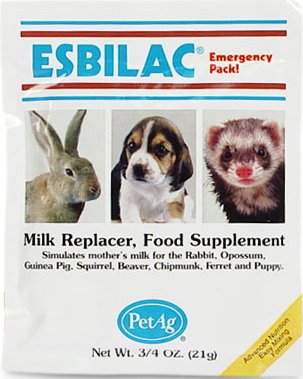
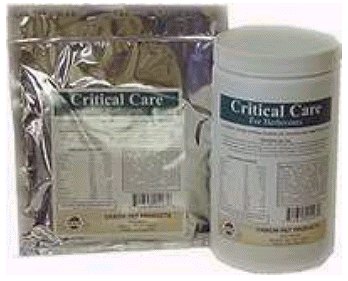
Blk 105 Clementi St. 12, #01-18
Singapore 120105
Tel: 6776 8858
Emergency: 6250 8333
74 Namly Place
Singapore 267223
Tel: 6469 4744
Emergency: 9496 2485
 BTW, he was also the same joker who told me that hay & cavy pellets were bad. Okay, so like what the heck am I supposed to feed them then?!
BTW, he was also the same joker who told me that hay & cavy pellets were bad. Okay, so like what the heck am I supposed to feed them then?! 
 For the first time, a vet was suspended for unprofessional conduct. Please read the full story so you know what a "great" vet he is! After reading about what I said about him AND what the story reported, you decide if you want to visit vets like him or not!!
For the first time, a vet was suspended for unprofessional conduct. Please read the full story so you know what a "great" vet he is! After reading about what I said about him AND what the story reported, you decide if you want to visit vets like him or not!!
 No doubt "Mr. J" eventually compensated the guy & sent him a letter of apology, but imagine the anguish the poor chap suffered!
No doubt "Mr. J" eventually compensated the guy & sent him a letter of apology, but imagine the anguish the poor chap suffered!

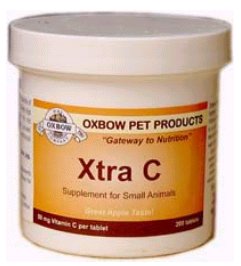
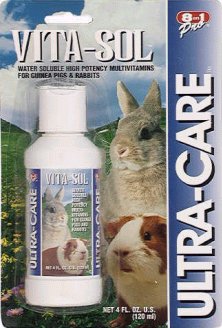
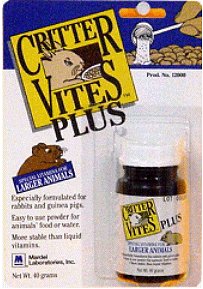
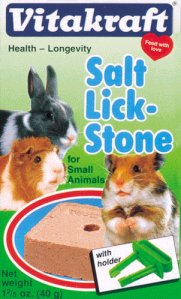
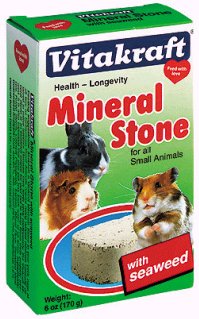
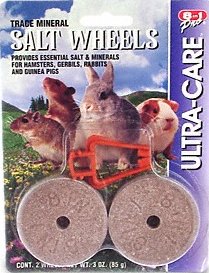
 "Ethoxyquin was first used as a rubber stabilizer and has also been used as an effective pesticide for fruit and to preserve color in chili powder,paprika & ground chilli"
"Ethoxyquin was first used as a rubber stabilizer and has also been used as an effective pesticide for fruit and to preserve color in chili powder,paprika & ground chilli"
If Ethoxyquin can be used as rubber stabiliser & effective pesticide, imagine what it can do inside your cavy. Yeek!
 "Ethoxyquin was permitted in feeds as a stabilizer to be fed to livestock at 150 ppm. Pet food wasn’t considered in the original permit, but pet food falls under the legal category of animal feed."
"Ethoxyquin was permitted in feeds as a stabilizer to be fed to livestock at 150 ppm. Pet food wasn’t considered in the original permit, but pet food falls under the legal category of animal feed."
Do you have any idea how much larger livestock like sheep & cow are compared to a cavy? Just 'cos Ethoxyquin is supposed to be fine for livestock, does NOT necessarily mean the same applies to a tiny cavy!
 "Since Ethoxyquin is classified as a pesticide it is not approved for use as a preservative in human food."
"Since Ethoxyquin is classified as a pesticide it is not approved for use as a preservative in human food."
I don't know about you but I'm not about to feed my cavy something which has the potential to send me to my grave! If it is deadly enough to be disallowed in human food, how good can it possibly be for a tiny cavy? Pesticide? Gee I don't fancy eating pesticide, so I certainly am not about to feed my cavies things laced with pesticide!
 "Fish meal must be stabilized with Ethoxyquin at a level of 400-1000 ppm, which is considerably higher than the amount used in animal feed. Fish meal is sometimes used as an ingredient in bird feed."
"Fish meal must be stabilized with Ethoxyquin at a level of 400-1000 ppm, which is considerably higher than the amount used in animal feed. Fish meal is sometimes used as an ingredient in bird feed."
Not just bird feed but in certain treats & mixes too! Remember the article above that said Ethoxyquin was permitted to be fed to livestock at 150 ppm? Well here we are talking about 400-1000 ppm which is a much higher dosage. Keep in mind that a cavy is tons smaller than any livestock!
 "FDA officials clearly recognized Ethoxyquin as a toxic substance and permit a minute quantity in animal feed because it is the cheapest and most potent preservative available. FDA and Monsanto researchers initially thought that Ethoxyquin degraded at around 160 to 190 C, so that when a feed product containing Ethoxyquin was cooked, the Ethoxyquin simply disappeared. Later research confirmed that it didn't disappear, it mutated into oxidized Ethoxyquin.
"FDA officials clearly recognized Ethoxyquin as a toxic substance and permit a minute quantity in animal feed because it is the cheapest and most potent preservative available. FDA and Monsanto researchers initially thought that Ethoxyquin degraded at around 160 to 190 C, so that when a feed product containing Ethoxyquin was cooked, the Ethoxyquin simply disappeared. Later research confirmed that it didn't disappear, it mutated into oxidized Ethoxyquin.
Hear that? Toxic substance! Now why would you feed your cavy a toxic substance? Why do you even want to buy cavy food with preservatives in the first place? Mutated into oxidised Ethoxyquin? Mutated??!! I can't imagine my cavy consuming mutated Ethoxyquin! Yeew!
 "The FDA kept allowing more usage in pet foods because they were less concerned about the animals that were not part of the human food chain. Since Americans do not consume companion animals there was little worry on the part of the FDA. Today, many dog, cat and bird feeds are preserved with Ethoxyquin or other chemical preservative in some way, although you won't always find it on the label, since Ethoxyquin is frequently added before it reaches the pet feed factory."
"The FDA kept allowing more usage in pet foods because they were less concerned about the animals that were not part of the human food chain. Since Americans do not consume companion animals there was little worry on the part of the FDA. Today, many dog, cat and bird feeds are preserved with Ethoxyquin or other chemical preservative in some way, although you won't always find it on the label, since Ethoxyquin is frequently added before it reaches the pet feed factory."
Ever wonder why it is allowed on sale if its lethal? Well now you know! You now also know that just 'cos it doesn't show in the ingredients, doesn't mean its not present. The only way to know if the item doesn't use chemical preservatives is if the product uses natural preservatives.
 "BHA, BHT and Ethoxyquin have been associated with cancer, liver and kidney disorders."
"BHA, BHT and Ethoxyquin have been associated with cancer, liver and kidney disorders."
I think this statement pretty much sums it up!!! Food manufacturers want to make their stuff last longer so they use these preservatives despite the well-documented dangers. Not very responsible indeed!
 "If you feed a commercial bird food, look for one that uses natural preservatives, such as vitamins C & E and that is preservative-free."
"If you feed a commercial bird food, look for one that uses natural preservatives, such as vitamins C & E and that is preservative-free."
Same applies for cavy food my dear!
 Article on Ethoxyquin by Dr Alicia McWatters
Article on Ethoxyquin by Dr Alicia McWatters
 Article of Guinea Pigs Online
Article of Guinea Pigs Online
 CBC News article on Ethoxyquin
CBC News article on Ethoxyquin
 US government info on Ethoxyquin
US government info on Ethoxyquin